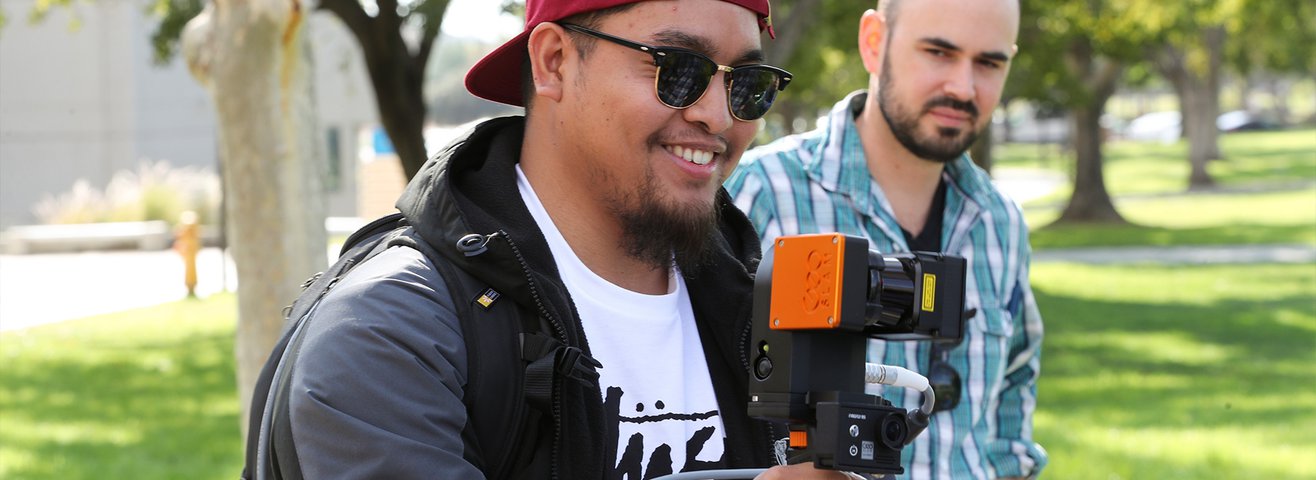
‘Keep the Momentum Going’: Caroline Amplatz’s gifts invest in science research and education
Caroline Amplatz’s tireless efforts to support great causes have been profound – and global. About one year ago, the attorney and private benefactor extended her desire to invest in science research and education to CSUSB with a substantial gift to the Department of Geological Sciences.
Amplatz’s gift was precipitated by conversations with her childhood friend, Sally McGill, a CSUSB geology professor and associate dean of the College of Natural Sciences (CNS). Amplatz said her gift’s focus was to provide powerful tools to support faculty research, in this case, drone and LIDAR (Light Detection and Ranging) mapping technology. “The professors are influencing a generation of students who will use the latest technologies to make a difference in the world,” she said.
Amplatz recently doubled down on her generosity with an additional gift to CNS. Building on the mutually beneficial relationship established last year, Amplatz and the college are expanding their partnership and developing more ways to bring innovative technologies to students, including an expansion of the drone and LIDAR program as well as upgrading the university’s Murillo Family Observatory with new and updated telescopes.
“Our college is extremely grateful for the learning opportunities Caroline Amplatz’s gifts will support,” said Sastry G. Pantula, dean of the college. “Her generosity has supported permanent investments in our college that will benefit our students and faculty for decades to come. She is definitely helping us define the future!”
Amplatz herself expressed gratitude for the “mutually beneficial relationship of trust” that has been established.
An above-ground map of the California State University Desert Studies Center near Baker, Calif.
A map of abandoned mines in the Mojave Desert
Amplatz was initially intrigued by McGill’s use of drones and LIDAR technology in her research on active faults. Drones provide a quick and inexpensive way of obtaining aerial imagery to study active faults and landslides. Mounting a LIDAR camera on a drone provides an additional benefit because “it can ‘see’ through vegetation and reveal aspects of the ground surface that might otherwise be invisible,” said McGill.
Amplatz’s initial gift also supported ground-based LIDAR instruments – including hand-held and tripod-mounted models – that are being used by geology faculty and students to create detailed maps of dams, debris flows and abandoned mine workings.
In these trying times, when so many are struggling through the current health and economic crisis, Amplatz was happy to reallocate a significant portion of her recent gift to support food security and basic needs for students through the CSUSB Obershaw DEN on both campuses.
“Caroline’s generous gift will have an immediate and profound impact on our students and college,” said Robert J. Nava, vice president and executive director for the CSUSB Philanthropic Foundation.
“We planted this amazing seed,” Amplatz said. “I dove in with two feet and got something interesting going. I want to build on our success and keep the momentum going.”
CNS is exploring with Amplatz possibilities for an observatory expansion that could include a multi-purpose room for 3D visualizations from a variety of disciplines.
Throughout her gift-giving, Amplatz cited her longtime relationship with McGill as well as growing up around doctors and scientists. Her father, Dr. Kurt Amplatz, was a world-renowned pioneer in the field of radiology and pediatric cardiology.


